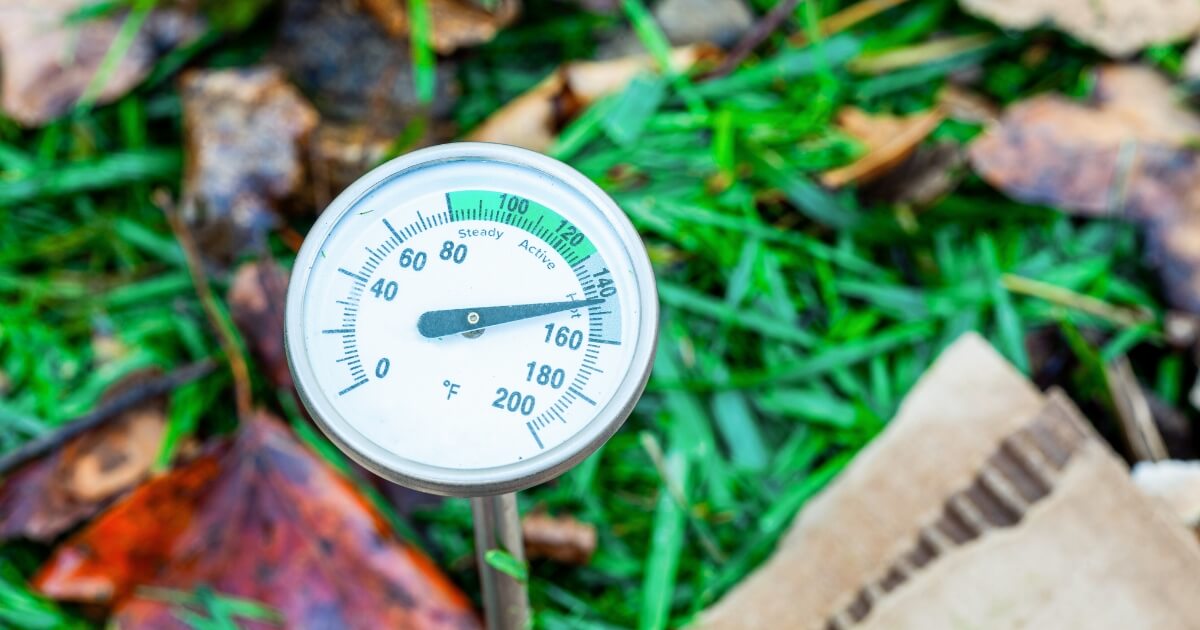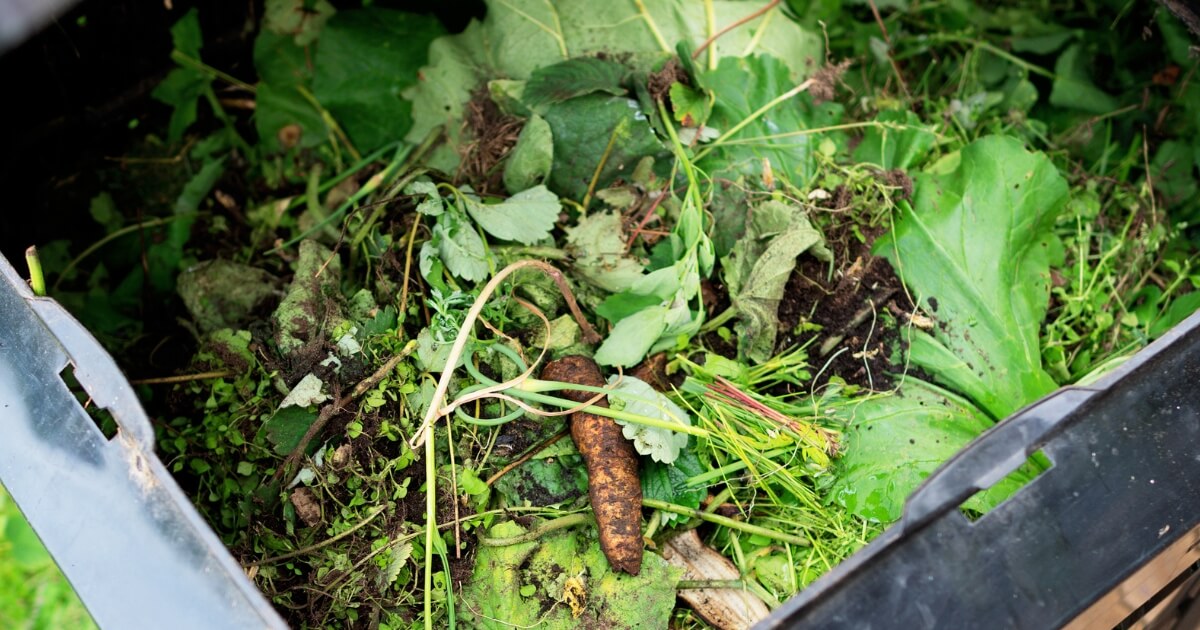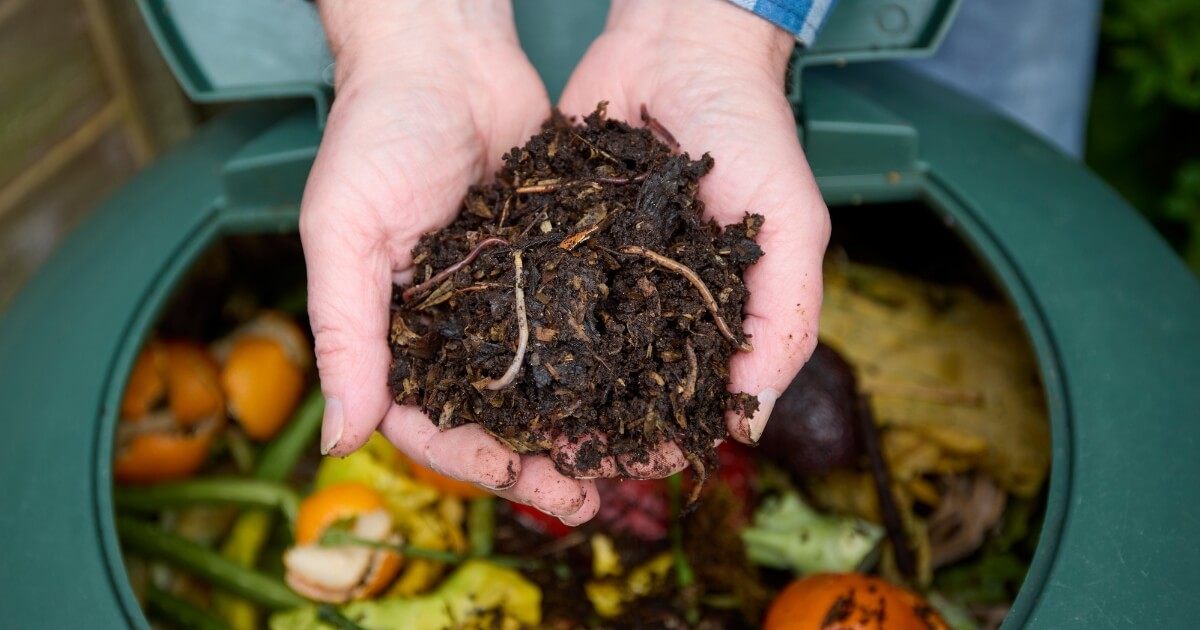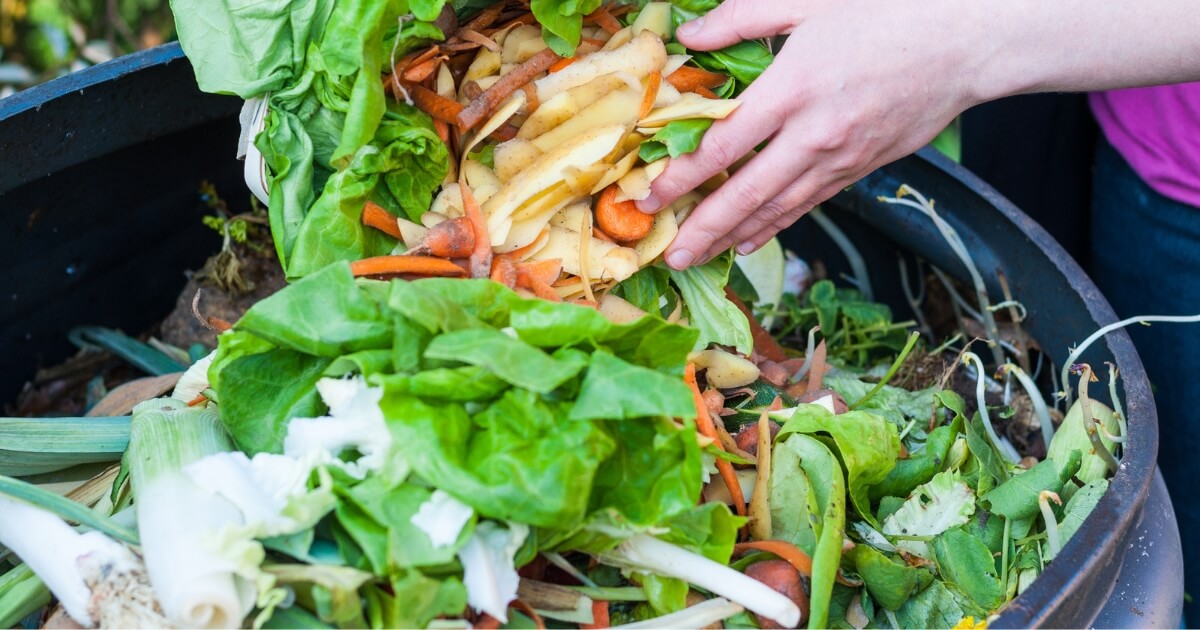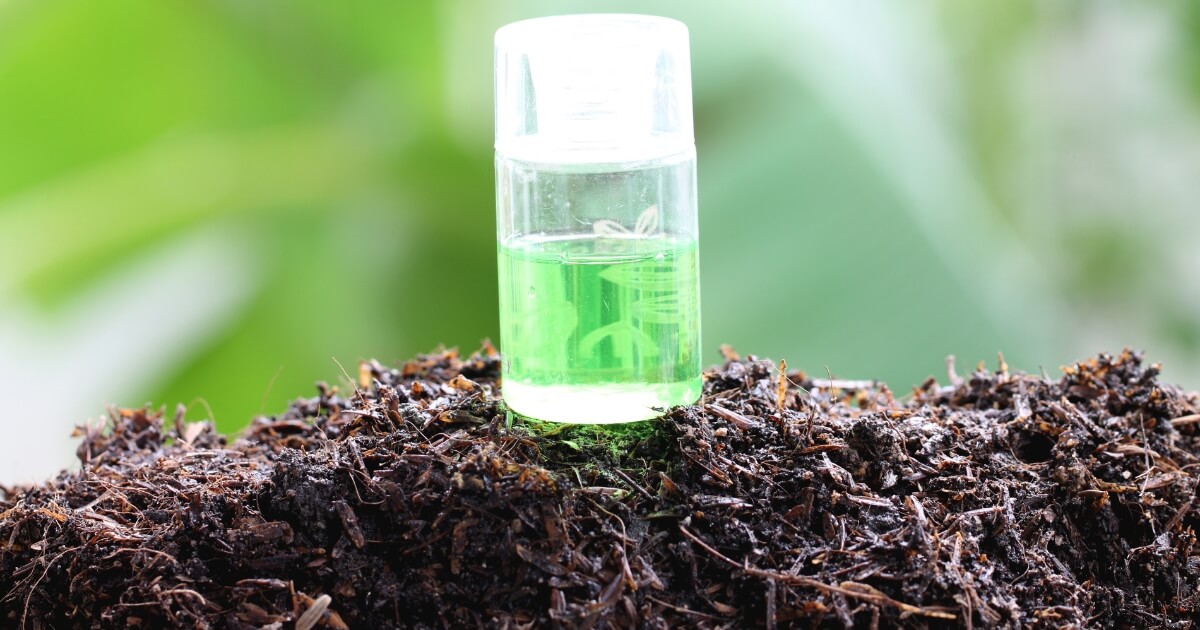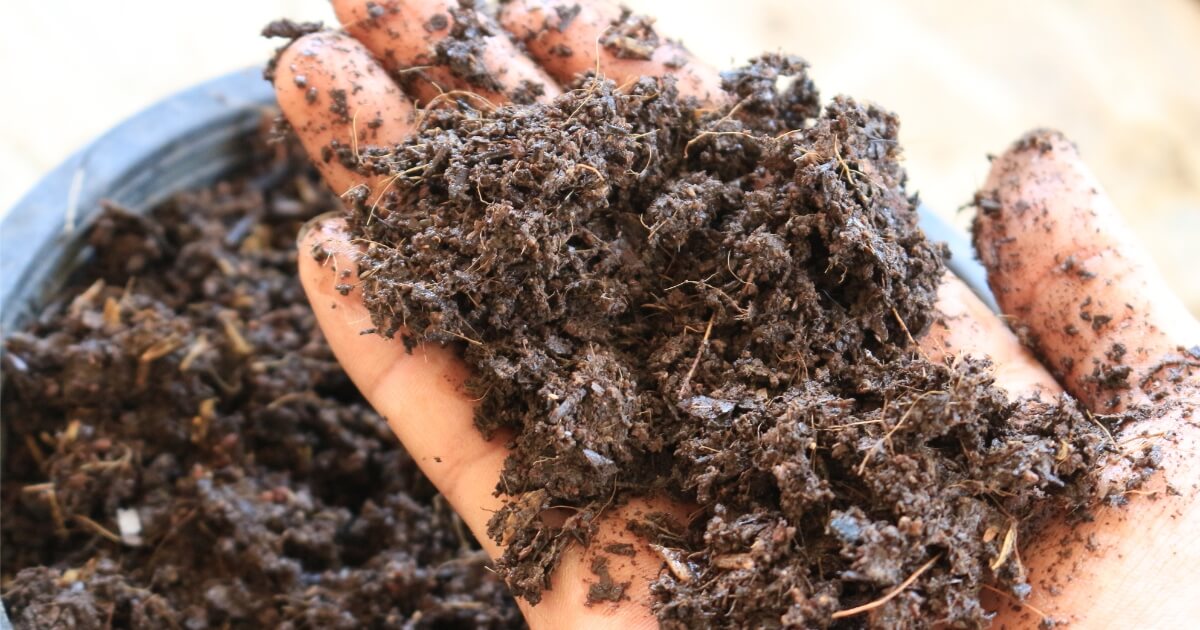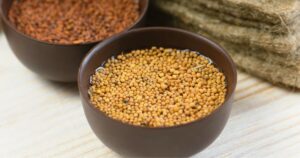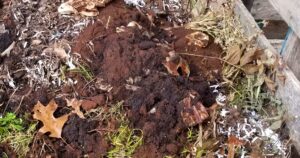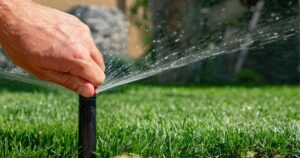When you think of compost as a living, breathing material, it’s much easier to give it the attention it requires to maintain its value as a beneficial garden amendment. But, how long compost will last if you don’t need it right away?
While it’s best to use finished compost within a year to get the most out of the nutrients, it will still retain enough goodness for much longer when you store it correctly.
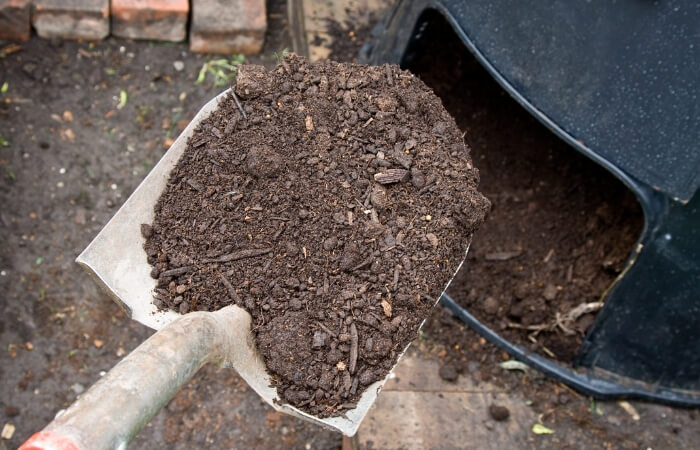
Compost of any age can improve your home’s landscaping, so use the guide below to keep it in great shape, so your yard and garden can flourish!
How Long Does Compost Last?
It’s common for gardeners who home compost to have batches of finished material that they need to store over the winter season or for later use in their yard.
The answer is compost should last for at least a year, but there are ways to extend the life of compost by storing it properly.
Here are ways you can store compost, with details on how long you can expect it to remain in good condition and full of vital nutrients:
How Long Does Compost Last in Soil?
When you mix compost with soil, it will keep breaking down, but it will never turn into dirt.
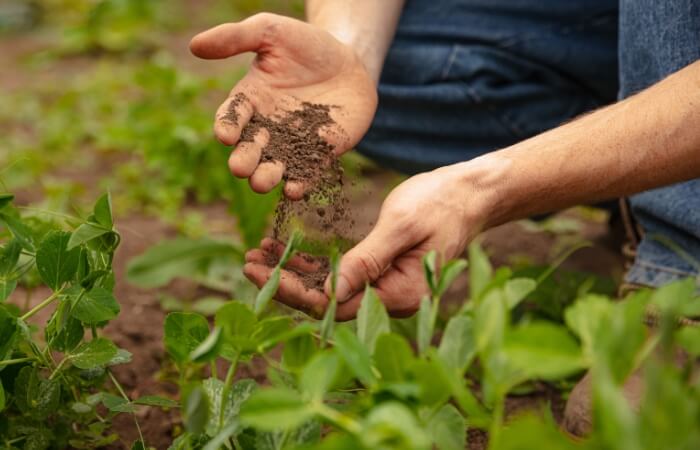
While the particles of organic matter in compost may become tiny, the material will remain for decades in the ground, which is why compost is ideal for improving poor soils.
As the mix of materials in compost keep decomposing, the active microbes will continue to disperse the nutrients and minerals in the organic matter. This process can take six to 24 months until the content is depleted.
Even after compost has lost its benefits as plant food and the microbes move on to new territory or die off, the material is excellent for:
- Helping soil maintain better drainage
- Helping soil retain more moisture
- Preventing soil compaction
- Assist in better oxygen penetration
Most gardeners refresh their planters and vegetable beds yearly with fresh compost to keep them at peak health for vigorous plant development.
Storing Compost in Piles
Compost will last the shortest time if you are storing it in piles on the ground due to it having the most exposure to the elements.
There are some benefits to storing compost in piles outside, such as:
- It allows earthworms to work through and improve the compost
- It doesn’t require storage space in a shed, garage, or house
- It takes little effort to cover it, instead of packing and transporting it in bags or bins
- It’s easier to keep the compost moist with natural humidity or rainfall
Compost left in a pile, even underneath a tarp, will retain most of its beneficial microbes and nutrients anywhere from four to 12 months.
The better you protect it from sun, rain, and pests, the longer it will last. A black or dark-colored tarp is ideal for covering an outdoor compost pile, with plenty of stakes to keep it in place.
Sunlight and dry conditions will degrade the nutrients faster. Heavy rains can cause it to lose volume from washing away or rotting out the compost by getting it too wet.
Please don’t leave the compost spread out on the ground before storing it. Instead, rake it into a pile before covering it, which will allow the compost to continue maturing and prevent excess loss from wind or rain.
Storing Compost In Bags
Under proper conditions, compost stored in bags should last 12-24 months before it loses too much of its value as a beneficial garden soil amendment.
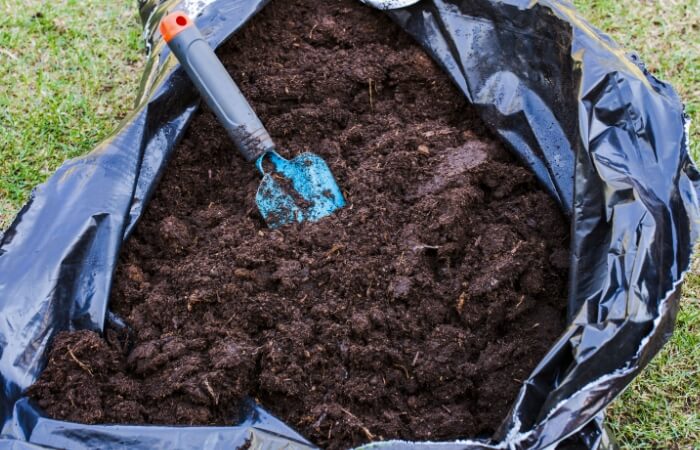
You can use plastic or fabric bags to store compost, but it’s crucial to keep the moisture content of the material in the correct range and allow airflow so the microbes can stay alive.
Using a moisture meter for compost is a quick and easy way to check the level. If the compost is too dry, mist the surface and gently stir the material as best you can to distribute the moisture.
If the compost is too wet, leave the top of the bag completely open and turn on a fan to help circulate more air over and around the bags.
The material of most fabric bags will have a weave loose enough to allow air to penetrate, giving microbes the oxygen they need to survive.
Poking small holes in the sides of plastic bags will help aerate the compost more thoroughly, as long as they aren’t so big material falls out.
You can also keep the tops of plastic bags open slightly to “air up” the material.
Storing Compost In Bins
Compost in bins or containers should last anywhere from 12-18 months in good condition if you check the material occasionally to ensure it isn’t getting too dry.
Containers with lids are great for keeping the compost from spilling, and you can stack them to save on storage space.
The lack of air is the problem with using plastic totes or other sealed containers to store compost.
If you use bins, always leave several inches of space at the top to allow air exposure over the surface, and pop the lid of air-tight containers every week or so to freshen the oxygen levels.
Monitor the moisture content so microbes remain active. Mixing up the compost when you notice a moisture imbalance is the only way to extend the shelf life and nutrient levels.
How Long Is Compost Tea Good For?
You make compost tea by soaking compost in water and then feeding your plants the nutrient-rich liquid. If you do nothing to extend the storage life of compost tea, it should be good for 2-5 days.
While it’s best to use compost tea within a day or two, you can store it for a week or more if you use the correct container and method to keep the microbes alive.
Expert gardeners suggest placing extra compost tea in a lidded, opaque container so light cannot reach the contents. Place the container in a cool, dim area to prevent extreme hot or cold temperatures from killing off the microbiological activity.
If you want to keep compost tea viable for longer than four or five days, you will need to invest in an aquarium pump and aeration device, such as a bubbler.
Place the compost tea in your container and run the aerator will send bubbles through the liquid and prevent it from getting stagnant.
The continual oxygen flow will be enough to keep the microbes alive until you can use the tea on your plants.
Most serious gardeners who love the results they see when using compost tea on their plants already use a bubbler to “brew” their compost tea faster. Therefore, it’s an easy transition to use the device to maintain the liquid and keep it fresh after it’s complete.
Compost tea is an excellent way to rejuvenate plants quickly and improve soil conditions.
The liquid is chock full of goodness that can directly be taken in by plant roots and soak through the soil instead of needing to wait for dry compost material to break down and release its nutrients.
How To Tell If Compost Has Gone Bad
Compost can go bad if you don’t care for it properly during storage and lose volume and nutrients as it ages.
Here are sure-fire signs compost has gone bad:
- The compost smells rotten instead of having an earthy odor
- The compost is bone dry
- You don’t see the ingredients continually breaking down
- The compost is soggy instead of moist
It is possible to save compost from total loss if you act quickly to counteract poor conditions. For example, you can spread out and keep mixing soggy compost to help excess water evaporate.
You can mist dry compost with water to hopefully bring dormant microbes back to life.
Unfortunately, when most people notice their compost is in poor condition, the batch is ruined.
However, that doesn’t mean you can’t put bad or old compost to good use.
What To Do With Old Compost
While you don’t want to dump rotten, wet compost around your plants, as it may cause harm and stink up your garden, you can use old, nutrient-depleted, or inactive compost without worry.
The best way to recycle old compost is to mix it with a fresh compost batch to create more volume when you refill pots or layer it into your garden beds to level the ground.
Old compost will improve the texture in sandy or clay soils, as the organic matter will hold and release moisture and oxygen, even if there are no active microbes left.
Old compost also makes excellent mulch to protect plant roots from temperature extremes and reduce weed growth.
